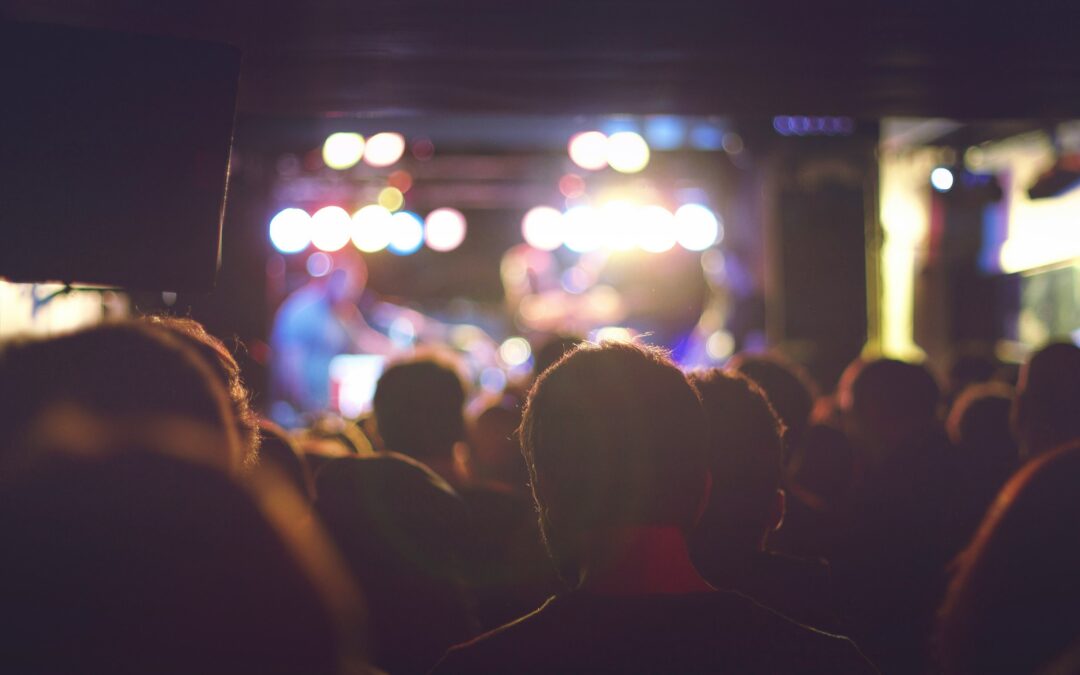Author: Sam Bowman
For people with bipolar disorder, attending large-scale events can seem overwhelming. However, bypassing large gatherings like conferences or trade shows means missing out on opportunities.
Instead of avoiding these events, protect yourself by preparing for them beforehand. A good understanding of what safety protocols are necessary for entrance and attendance is useful, as well as being prepared for emergencies.
It’s also wise to have a plan in place should you become overwhelmed during the event.
Creating a Mental Health Plan for the Event
Remember that you are not alone. At every large event, there is probably someone in the crowd also dealing with the challenges of bipolar disorder. Crowded venues are overwhelming for most people, triggering symptoms like shortness of breath or a racing heart. Creating a mental health plan helps you to address these symptoms and regain control of your emotions.
If you’ve never attended a large-scale event, it’s similar to coping with bipolar disorder during loud holidays. Noisy crowds can also trigger anxiety, but you can plan for this by:
- Getting the agenda beforehand so you can avoid activities that tend to generate large crowds and lots of noise, like concerts;
- Having enough medication with you to cover travel and event attendance;
- Bringing comfort items, like a stress ball, fidget toy, or even a coloring book and crayons, to help you relax.
Even with these preparations, the stress of the event can trigger fatigue. Stepping away for a few minutes allows individuals with bipolar disorder to manage energy levels. Before signing up, ask the event coordinators if there are any dedicated spaces for attendees to take a break. If not, find a local spot to retreat without a big crowd.
When you feel overwhelmed at the event, retreat to this quiet location and practice mindfulness with meditation techniques, such as deep breathing, walking, or guided meditation. Doing so will help you alleviate stress and regulate your emotions. Focusing on your breathing and feelings allows you to regain control.
It’s also wise to boost your mental health in the days leading up to the event. Try to maintain a healthy sleep schedule. Stick to an energy-boosting diet that week with foods such as fruits, leafy greens, and healthy fats and proteins rather than junk food. Be wary of alcohol, as alcohol affects many different parts of your body, whether you drink before or during the show. It can interfere with a wide variety of medications while reducing your inhibitions.
You can also reduce stress by understanding what safety protocols and laws are in place for the event.
Event Safety Protocols and Personal Safety Laws
Being aware of event safety protocols will help keep you calm when you encounter them rather than being intimidated. These can inform you what to do in an emergency, including how to navigate such a possibility safely.
Your venue may employ the latest technology trends in tech safety, including:
- Crowd management systems that use facial recognition technology for security purposes;
- Drone surveillance to secure larger and open-space venues;
- License plate recognition technology to monitor unauthorized vehicles and illegal parking;
- Mobile security apps to keep conference staff and security teams in contact during an emergency.
Knowing what conference planners have in place can help you feel safer. It’s also helpful to understand the essential personal safety laws at a venue, especially if the event is in another country. Some things to be aware of include:
- Different countries have different laws on the legality of self-defense, including restrictions on weapons such as guns, pepper sprays, batons, etc.
- Be aware of laws and safety warnings when using public transportation, taxis, and rideshares to reduce your risk of danger, especially when traveling alone.
- Educate yourself on local emergency resources and procedures, such as contacting the authorities, the nearest hospital location, etc.
- To protect the security of your data, pay attention to the security measures required by the event.
- Keep your money in a hidden money belt or neck pouch for safety, and do not leave valuables unattended.
Finally, traveling itself can be risky. Before you leave, notify loved ones of your plans and travel dates. You can also purchase travel insurance for added security.
People with bipolar disorder can reduce the stress caused by attending large-scale events by creating a mental health plan to navigate the day. Understand event security and local legalities to protect yourself. By doing so, you can feel confident participating in events that further your prospects.
The content of the International Bipolar Foundation blogs is for informational purposes only. The content is not intended to be a substitute for professional medical advice, diagnosis, or treatment. Always seek the advice of your physician and never disregard professional medical advice because of something you have read in any IBPF content.


